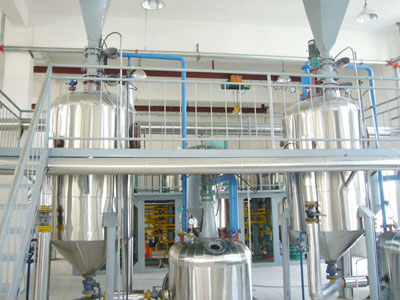Which countries are suitable for investing in palm oil refining plant?(1)
As an important vegetable oil, palm oil is widely used in many fields such as food processing, cosmetics, detergents and biofuels, and has a huge market demand. Investing in palm oil refining plant is an attractive business opportunity, but it is very important to choose the right country. The following analysis from the aspects of raw material supply, market demand, policy environment, infrastructure and labor costs, which countries are suitable for investing in palm oil refining plant.

1. Countries with sufficient supply of raw materials
The main raw material of palm oil is palm fruit, and palm trees mainly grow in tropical areas. Therefore, choosing a country with sufficient supply of raw materials can effectively reduce production costs and improve competitiveness.
Indonesia and Malaysia: These two countries are the largest palm oil producers in the world, accounting for more than 80% of the global palm oil production. Indonesia and Malaysia have vast palm plantations and mature industrial chains, which provide a stable supply of raw materials for palm oil refining plant. In addition, these countries also have perfect export channels to facilitate the sale of products to the international market.
Thailand and Nigeria: Although not as large as Indonesia and Malaysia, Thailand and Nigeria are also important palm oil producers. Thailand has a geographical advantage in the Southeast Asian market, while Nigeria, as the largest economy in Africa, is developing rapidly in its palm oil industry.
2. Countries with strong market demand
Investment in palm oil refining plant needs to consider the needs of the target market. Countries with strong demand can provide guarantee for product sales.
India: India is the world’s largest importer of palm oil, and its demand for edible oil is huge. Due to local climate restrictions, it is difficult for India to grow palm trees on a large scale, so it is highly dependent on imported refined palm oil. Investing in India can not only satisfy the local market, but also radiate to other countries in South Asia.
China: China is the second largest importer of palm oil in the world, which is widely used in food processing and industrial manufacturing. With the improvement of residents’ consumption level in China, the demand for high-quality vegetable oil continues to grow. The China market is huge and diversified, which provides investors with huge business opportunities.
Emerging markets in Africa: Africa’s population is growing rapidly, urbanization is accelerating, and the demand for edible oil is also rising. Except Nigeria, Ethiopia, Kenya and other countries have great potential demand for palm oil products.
3. Countries with superior policy support and investment environment
Government policies are of vital importance to investors. Some countries encourage foreign capital to enter palm oil industry through measures such as tax reduction and subsidies.
Indonesia and Malaysia: As traditional palm oil producers, the two governments attach great importance to the development of this industry and have introduced a series of policies to attract foreign investment. For example, the Indonesian government provides preferential tax policies and actively promotes the biofuel industry, creating new growth points for palm oil refinery.
India: In recent years, the Indian government has relaxed restrictions on foreign investment and given preferential tax policies to the food processing industry. These measures have facilitated foreign-funded enterprises to set up palm oil refinery in India.
Some African countries: In order to attract foreign investment, many African countries provide land lease concessions, tax relief and other policy support. For example, Ghana and Cô te d ‘Ivoire are actively promoting the development of agricultural processing industries, creating favorable conditions for investors. Which countries are suitable for investing in palm oil refining plant?(2)
